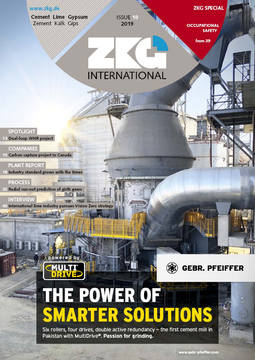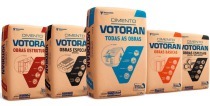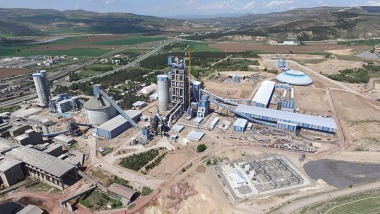Urban waste as a source of energy
for Votorantim plants
At the plant in Salto de Pirapora, in the countryside of São Paulo, Votorantim Cimentos was one of the first in the country to use part of unrecycled urban waste as an energy source for cement production. This process, called Refuse-Derived Fuel (RDF) co-processing, is widely used in North American and European countries and was introduced in Brazil in 2018, thanks to the company’s pioneering initiative.
Urban waste is a global challenge. Brazil produces more than 78 million t of urban waste annually, according to calculations by the Brazilian Association of Public Sanitation and Special Waste Companies (Abrelpe, for its initials in Portuguese). Approximately 41 % of the garbage collected in the country is improperly disposed. RDF co-processing is a viable alternative to reduce the impact of urban waste, reduce the volume of garbage sent to landfills and transform part of this waste into energy for cement production.
In 2018, Votorantim started an unprecedented program in the cement industry in Brazil, transforming part of the garbage collected in Piracicaba and Sorocaba (in the countryside of São Paulo) into energy for the production of cement. In 2018, during the testing period for licensing, the Salto de Pirapora plant in São Paulo used 17900 t of RDF, resulting in a 5.3 % petroleum coke substitution rate. In 2019, the unit received a permanent environmental license to use RDF. The plant has the capacity to process 65000 t/a.
In the last four years (2016-2019), Votorantim invested R$ 47 million in co-processing at the Salto plant, which included equipment modernization and adaptation. In the next four years, another R$ 167 million investment is estimated.
In addition to the Salto unit, the plants in Rio Branco do Sul (PR), Cuiabá (MT), Sobral (CE) and Brasília (DF) are also advancing in projects for the disposal of urban waste as an energy source. Salto de Pirapora (SP) is the only plant already operating with a permanent license. Considering these four plants, Votorantim estimates that it will be co-processing about 130000 t of urban waste annually, transforming it into energy in the cement kilns.
Since 1991, Votorantim has been a pioneer in the use of alternative fuels in Brazil. The first type of waste used was tires, and since then the company has been researching new materials that can replace petroleum coke as fuel in the cement manufacturing kilns, a process called co-processing.
In Brazil, 14 of the Votorantim plants are co-processing or licensed to operate on alternative fuels. The Brazilian operations use different types of biomass (such as rice hulls, wood chips, babassu coconut, sawdust and açaí pits) as fuel. In addition to biomass, they also co-process used tires and other types of industrial waste. In 2018, the company achieved a thermal substitution rate of approximately 30 %.
In all, in 2018, Votorantim used 854000 t of biomass, tires and waste, resulting in a reduction of 521000 t of CO2 emissions. This energy substitution prevented the use of 195000 t of petroleum coke.
//www.votorantimcimentos.com" target="_blank" >www.votorantimcimentos.com:www.votorantimcimentos.com



